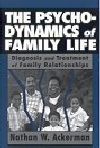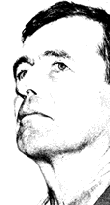In Jim's text,(1992),Family of Origin Therapy: An Intergenerational Approach, (Brunner Mazel, New York), his comprehensive work on his unique original contribution to the field of Family Psychology, he quoted from one of his favorite movies,I Never Sang a Song for My Father(Columbia Pictures):
"Death ends a life ,but it does not end a relationship ,which struggles on in the survivor's mind toward some resolution, which it may never find."
Jim's death will not end his passionate relationship with the family therapy field. Jim will continue to be important for new generations of serious family therapy students not only for how his work provides a framework and method for families to deeply heal but also as a reminder of all of our own unfinished business with our own family of origins which drove many of us to pursue the study of family therapy.
Jim's passion about family therapy not only came from him feeling of frustration and disappointment at never having had a heart to heart healing dialog with his father before his father died but also from his war experiences in the army in World War II. Jim participated in over 300 days of combat with the 88thDivision , 913thField Artillery Battalion in the Italian campaign. He never forgot the craziness of war and the memories of the men who died in his platoon. Thus, Jim understood death quite personally at an early age and continued to have other personal family encounters with death which, I believe, lit a fire in his heart for people to deal directly with others in their lives before it was too late. In this way, Jim was an existentialist who deeply believed in encountering life completely with meaning and purpose especially with honoring and coming to terms with our own histories.
Jim was a well respected theoretician in the field of family therapy. He wrote a classic paper in 1970 entitled, "Symptoms from a Transactional Viewpoint" which integrates Fairbairn's and Henry Dicks object relations theory with family systems concepts. This paper has been used as required reading in many family training programs throughout the world. All of Jim's theoretical work can be found in his book (1982),Explorations in Marital and Family Therapy: Selected Papers of James L. Framo(Springer, New York).
Jim also co-edited with Ivan Boszormenyi-Nagy, one of the earliest texts in family therapy (1965),Intensive Family Therapy(Brunner Mazel, New York), which has been translated into six languages. He also co-edited with Robert Green, (1982),Family Therapy: Major Contributions, (International Press, New York). In 1972, he published another classic book:Family Interaction: A Dialogue Between Family Researcher's and Family Therapists, (Springer, New York). He recently finished a new book along with Tim Weber and his wife Felise Levine,A Family of Origin Consultation: One Family's Storythat will be published by Brunner/Routledge. Finally, Jim has over 60 other publications including chapters and journal articles.
Dr. James Framo was a founding member and past president (1981–1982) of the American Family Therapy Academy and a fellow and supervisor in the American Association for Marriage and Family Therapy. In 1984, he was awarded the "Distinguished Achievement in Family Therapy." In 1992,the American Association of Marriage and Family Therapy designated him as a founder in the field. In 1994, he was awarded the "Distinguished Contribution in Family Therapy. Finally, Jim holds a diploma of Clinical Psychology from the American Board of Professional Psychology. He was also a fellow of the APA. He has served as advisory editor of a variety of several journals in Marriage and Family Therapy.
Onapersonalnote,IfeeldeeplyhonoredtohaveknownJamesFramo.WebothwerefromPhiladelphia.ItrainedattheFamilyInstituteofPhiladelphiawhereJimwasafoundingmember.Iwasthrill


 正在提交中...
正在提交中...



